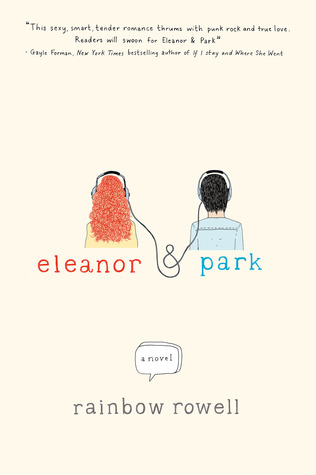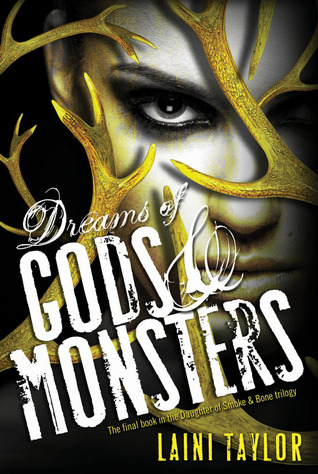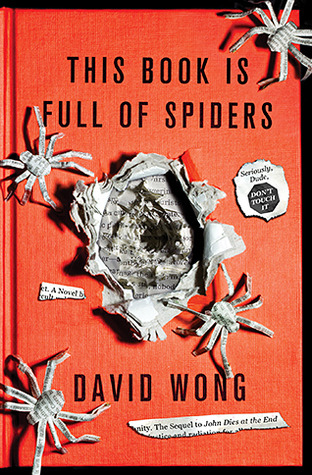I want everyone to read you, Eleanor & Park!
I have so spoiled myself over the past few weeks, reading brilliant wordsmiths like Rainbow Rowell and Laini Taylor whose emotive descriptions are devastatingly apt. This book is ADORABLE. It seems like almost everyone I knew in high school fell in love exactly like this; teenagers have a way of each feeling uniquely disenfranchised, and meeting someone else who complements your weird and loneliness feels like finally the universe has done you a solid. Eleanor and Park aren’t, though, overwhelmingly privileged teens who create their own angst, as many of my peers were . Park is mixed-race and experiences racism and ignorance from his classmates and neighbors, and even though most of it isn’t violent or explicitly cruel, it leaves him feeling like an outcast. Eleanor is new at Park’s school, and comes from an abusive home, where she, her siblings, and her mother constantly navigate the whims of her alcoholic stepfather. On top of her home being dangerous, her family is also poor, so she doesn’t feel safe at school either, where her worn-out, unstylish, and ill-fitting clothes make her stand out against her classmates.
Their meet-cute isn’t much of one: Eleanor stands awkwardly at the front of the bus looking for a seat; Park, begrudgingly, almost angrily, allows her to take the seat next to him. Soon, though, as they’re sitting together, Park notices Eleanor reading his comics, and he takes to bringing some with him for her to read. Soon after, they’re sharing Walkman headphones. Then, mixtapes. As teens identify themselves so much by the stuff that they like, Eleanor and Park’s mutual interest in these things and the seeming intuition about what the other will like (because they, themselves like it) eventually grows into affection and then breathless, all-consuming young love.
Their love is an escape from a world that doesn’t understand them into one that does, but it also in small ways gives them more strength to survive the parts of their lives without each other. As much as they hate being apart, they take courage away from being together. Park, for instance, feels more comfortable expressing himself and starts wearing eyeliner simply because he likes it. Eleanor’s situation is different — she can’t undergo any kind of obvious transformation without rocking the boat with her stepfather, but the knowledge that she finally has a real support system in Park (and a growing one in his family) subconsciously empowers her to believe that she is loveable. It’s a more subtle transformation, but as she loves Park more, she needs him less.
I’m, again, so grateful to the Cannonball for introducing me to Rainbow Rowell. After two books, she’s immediately on the list of authors I will read, regardless of the description, because I now trust her to write a great book even if it’s not a plot that appears to immediately grab me. Attachments is now on my library list and I can’t wait for her next to be published later this year!
I have so spoiled myself over the past few weeks, reading brilliant wordsmiths like Rainbow Rowell and Laini Taylor whose emotive descriptions are devastatingly apt. This book is ADORABLE. It seems like almost everyone I knew in high school fell in love exactly like this; teenagers have a way of each feeling uniquely disenfranchised, and meeting someone else who complements your weird and loneliness feels like finally the universe has done you a solid. Eleanor and Park aren’t, though, overwhelmingly privileged teens who create their own angst, as many of my peers were . Park is mixed-race and experiences racism and ignorance from his classmates and neighbors, and even though most of it isn’t violent or explicitly cruel, it leaves him feeling like an outcast. Eleanor is new at Park’s school, and comes from an abusive home, where she, her siblings, and her mother constantly navigate the whims of her alcoholic stepfather. On top of her home being dangerous, her family is also poor, so she doesn’t feel safe at school either, where her worn-out, unstylish, and ill-fitting clothes make her stand out against her classmates.
Their meet-cute isn’t much of one: Eleanor stands awkwardly at the front of the bus looking for a seat; Park, begrudgingly, almost angrily, allows her to take the seat next to him. Soon, though, as they’re sitting together, Park notices Eleanor reading his comics, and he takes to bringing some with him for her to read. Soon after, they’re sharing Walkman headphones. Then, mixtapes. As teens identify themselves so much by the stuff that they like, Eleanor and Park’s mutual interest in these things and the seeming intuition about what the other will like (because they, themselves like it) eventually grows into affection and then breathless, all-consuming young love.
Their love is an escape from a world that doesn’t understand them into one that does, but it also in small ways gives them more strength to survive the parts of their lives without each other. As much as they hate being apart, they take courage away from being together. Park, for instance, feels more comfortable expressing himself and starts wearing eyeliner simply because he likes it. Eleanor’s situation is different — she can’t undergo any kind of obvious transformation without rocking the boat with her stepfather, but the knowledge that she finally has a real support system in Park (and a growing one in his family) subconsciously empowers her to believe that she is loveable. It’s a more subtle transformation, but as she loves Park more, she needs him less.
I’m, again, so grateful to the Cannonball for introducing me to Rainbow Rowell. After two books, she’s immediately on the list of authors I will read, regardless of the description, because I now trust her to write a great book even if it’s not a plot that appears to immediately grab me. Attachments is now on my library list and I can’t wait for her next to be published later this year!




